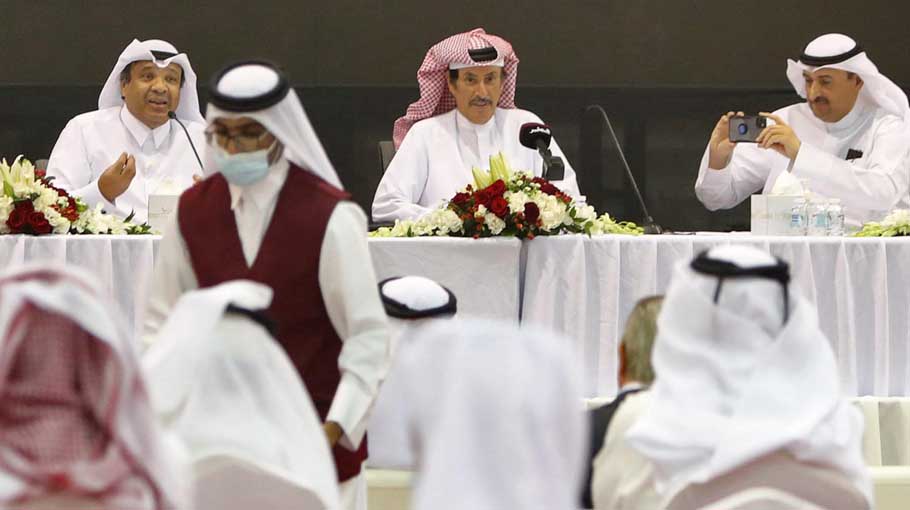Qatar ready for tightly controlled first legislative polls

AFP, DOHA - Qataris are gearing up for inaugural legislative polls on Saturday (Oct 1) that are a symbolic democratic step for the autocratic Gulf region, but are unlikely to alter the monarchy's balance of power.
The Oct 2 election is for 30 members of the 45-strong Shura Council, a body with limited powers that was previously appointed by the Emir as an advisory chamber.
While it is a rare nod to democracy in the Gulf, which is mostly ruled by absolute monarchies and where only Kuwait has a fully elected Parliament, observers say this is no turning point for Qatar.
Read more: Qatar hosts awareness webinar for Bangladeshi expats
Instead, they stress that it comes with heightened scrutiny on the country, which is set to host next year's football World Cup.
Qatar had announced it would hold elections to the Shura Council in 2007, but the vote was postponed.
It is important to understand that the ambition "is not to create a constitutional monarchy but increase participation" in society, said Mr Andreas Krieg, chief executive of risk consultancy MENA analytica. "Applying metrics of democracy is wrong."
The Shura will be allowed to propose legislation, approve the budget and recall ministers.
But the Emir, all-powerful in the world's largest exporter of liquefied natural gas, will wield a veto.
The streets of Qatar's towns have been speckled with billboards adorned with beaming candidates sporting the national white thobe.
Candidates have appeared on state-run TV to pitch for support, with each contender pictured against an identical backdrop alongside slides stating their policies - a far cry from the expensive political ads typical elsewhere.
And unlike established democracies, there have been no adversarial head-to-head debates between candidates. Beyond single-candidate town hall meetings, posters and TV spots, the country's introduction to democracy has been limited, with no change of government possible and political parties outlawed.
All candidates had to be approved by the powerful Interior Ministry against a host of criteria, including age, character and criminal history.
At glitzy campaign events, candidates attempted to woo sometimes modest crowds with a waiter service of hot drinks, buffet meals and glossy campaign literature.
The candidates are mostly men, with just 28 women among the 284 hopefuls running for the 30 available council seats. The remaining 15 seats will be appointed by the Emir.
Most of Qatar's 2.5 million residents are foreigners ineligible to vote.
Candidates will have to stand in electoral divisions linked to where their family or tribe was based in the 1930s, using data compiled by the then British authorities.
Diplomatic sources suggest families and tribes have already conducted internal ballots to determine who will be elected for their constituencies.
Qataris number about 333,000, but only descendants of those who were citizens in 1930 will be eligible to vote and stand, disqualifying members of families naturalised since then.
Some members of the sizeable Al-Murrah tribe are among those who face being excluded from the electoral process, sparking a fierce debate online.
Experts have suggested that representatives of those groups excluded could be among those directly appointed by the Emir.
"I've seen it create a divide within our society, that we (younger Qataris) had hoped no longer existed," said a voter, who declined to be named because of the sensitivity of the issue.
The electoral law prohibits "stirring up tribal or sectarian strife among citizens in any way" or receiving campaign funding from abroad.
Read more: Kabul airport reopens to receive aid: Qatari envoy
Qatar's election process has sparked a torrent of fake news on social media with the Arabic hashtag #BoycottQatarElections trending on Twitter, despite initially being posted by only one account.
Officials in the emirate fear the polls could be exploited by Qatar's neighbours, Saudi Arabia and the United Arab Emirates (UAE).
Municipal councils are the only elected public chambers in Saudi Arabia.
In the UAE, half the seats on a government advisory body were elected during a ballot in 2015, when about one-quarter of citizens had the right to vote.
Qatar held its first municipal election in 1999.
Ahead of Saturday's vote, volunteers gathered to receive step-by-step instructions on how the electoral process would work from the time voters arrive and casting their ballots to leaving, the Qatar Tribune daily reported.




